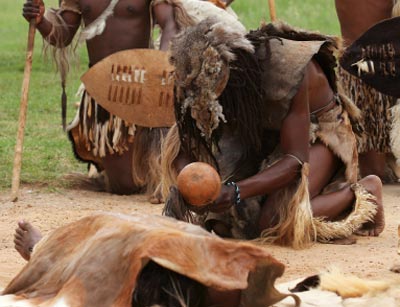Archbishop Desmond Tutu dubbed South Africa the “Rainbow Nation” because of its multiethnic composition. It is said that as president, Nelson Mandela adopted the term as a slogan of the reconciliation he advanced in the country’s newly developing multicultural diversity after segregationist apartheid ideology ended in 1994.

In one of the continent’s most economically prosperous and socially liberal countries, the only non-white nation worldwide to have legalized the tabooed same-sex marriage, anti-foreign marauders have murdered about 50 non-nationals and injured thousands and forced many to flee leaving all their belongings.
The 2008 violence against non-nationals blamed for taking scarce jobs must be a bitter pill to swallow for Mandela, the African National Congress (ANC) and all who in their way contributed to the fall of the evil apartheid empire of the Afrikaners.
The anti-apartheid struggle might well be continuing today were it not for the championing of the cause on the global stage by Afro-conscious groups in various communities; African governments that lead various boycotts such as that against South Africa’s participation in sports and particularly those southern African countries that sheltered the ANC and other militants during their bush way against Pretoria. And most of all there was the internationalist participation of Cuba , which provided men and arms to slay apartheid.
While xenophobia may well be the result of the pent up frustrations of ages of unrealized dreams for the black majority, it is not an acceptable way to address what may be the failure of the ANC to provide the people with more than their “free paper” – as the enslaved Africans in the British Caribbean termed the Emancipation Proclamation of 1834: they were free to get off the Bacras’ estates but not free to access any social or economic ameliorative facilities such as jobs and places to live.
Mandela’s 5-year term of office to 1999, did little to change the lot of the majority of black South Africans who account for nearly 80 per cent of the population – of 43 million – that comprises ethnicities who speak nine officially recognised languages and many more dialects.
The white population comprises Dutch, Portuguese, German, French Huguenot, English, Irish, Scottish and Welsh ethnicities branched into Afrikaans and English speakers.
The old Union of South Africa was created by Britain from the Cape and Natal colonies, as well as the republics of Orange Free State and Transvaal, on May 31, 1910. The Natives’ Land Act of 1913 restricted the ownership of land by blacks to seven per cent of the country, although this amount was eventually increased marginally. Because of aridity, only 13.5 per cent of South Africa’s land can be used for crop production.
While the ANC’s social housing policy has produced some improvement in living conditions in many areas, the vast majority of Africans still live in hovels and South Africa’s United Nations Human Development Index has fallen steadily since the party won power.
Mandela’s and his successor Thabo Mbeki’s approach has been to not rock the economic boat of the mining giants whose gold and diamond income built the nation’s developed country infrastructure.
According to Statistics South Africa, in 1995 the average white household earned four times as much as the average black household. In 2000 the average white household was earning six times the average black household.
At the same time, many South African employers have employed migrants primarily from other African countries for lower pay than South African citizens, especially in the construction, tourism, agriculture and domestic service industries.
Ironically, the white expatriate population has also been growing with an influx of British and Zimbabwean whites who cite the weather and a better quality of life as their reasons for migration.

The government has been cautious in land reform, fearful of triggering a similar situation as has ensued in neighbouring Zimbabwe that had emerged from a comparable racist status when it was known as Rhodesia.
It is perhaps for these reasons that the establishment fears recently elected ANC president, the populist Jacob Zuma, may rock the applecart and send South Africa on the clichéd chaotic path of the liberated/independent states of the rest of the continent.
Is this an inevitable African condition? Twice, in Bonaire, the Netherlands Antilles and Nassau, the Bahamas, as a minority among uninhibited whites, I have heard it declared that black prosperity is dependent on the presence of whites.
In Bonaire, a white American man with a patch over one eye like a pirate declared what was needed for Haiti to succeed was “a few good white people” to land and inspire order. A woman at a get-together in Nassau blurted out, “But this is a white country.”
“No!” said our host, my caucasian journalistic colleague whose bronzed husband had a touch of Africa, as she explained that the population and government were predominantly black. “But look at the buildings and development; that’s white,” the woman insisted.
If there is la condition Africaine we have strong grounds to blame the colonial collision. But the excuse cannot continue to be used in the face of developments in other parts of the world that experienced European domination and destruction – although without the emaciating trauma of dehumanising slavery.
South Africa must therefore take whatever action is necessary and just to bring prosperity to its native population, embrace its neighbours who contribute to its success and discredit the cliché of African chaos and arbitrariness.
Jacob Zuma, who is likely to be the next president of South Africa, was the only voice among the national leadership to condemn Robert Mugabe’s recent election gaffe in Zimbabwe, so there may be reason for hope.
What do you think?


About Mark Lee
Mark Lee has been a long-time journalist writing, editing and producing in print, radio television and new media.










